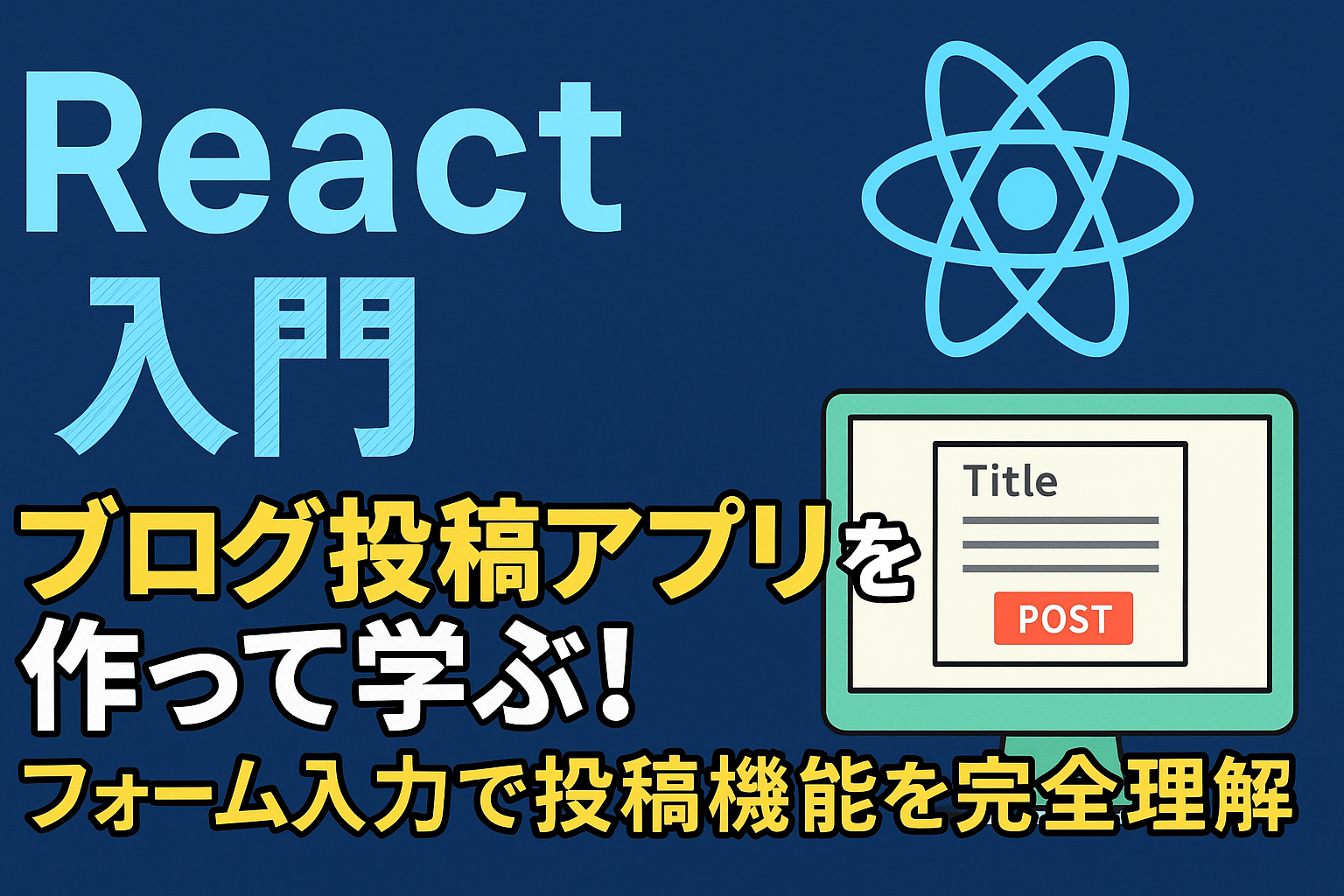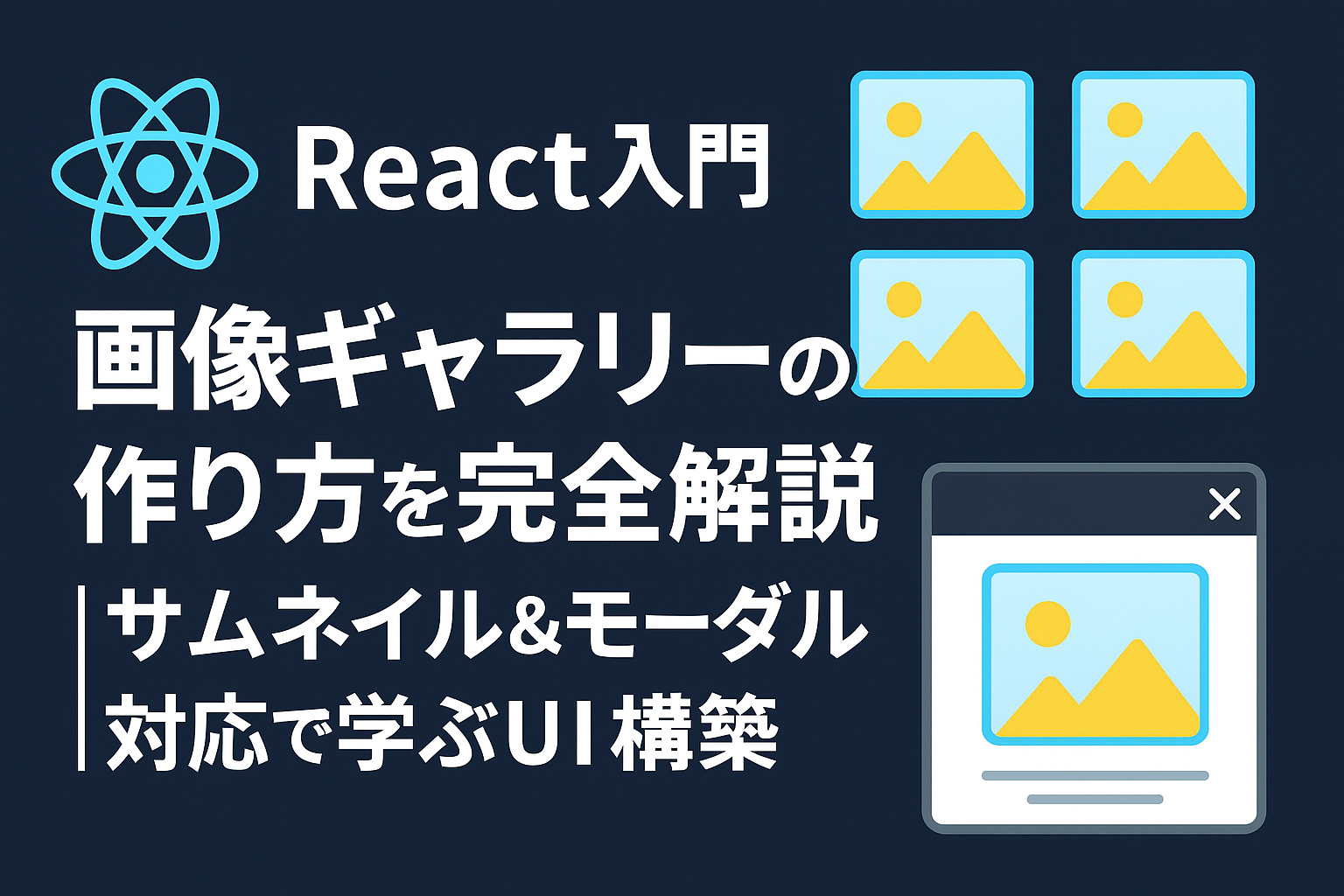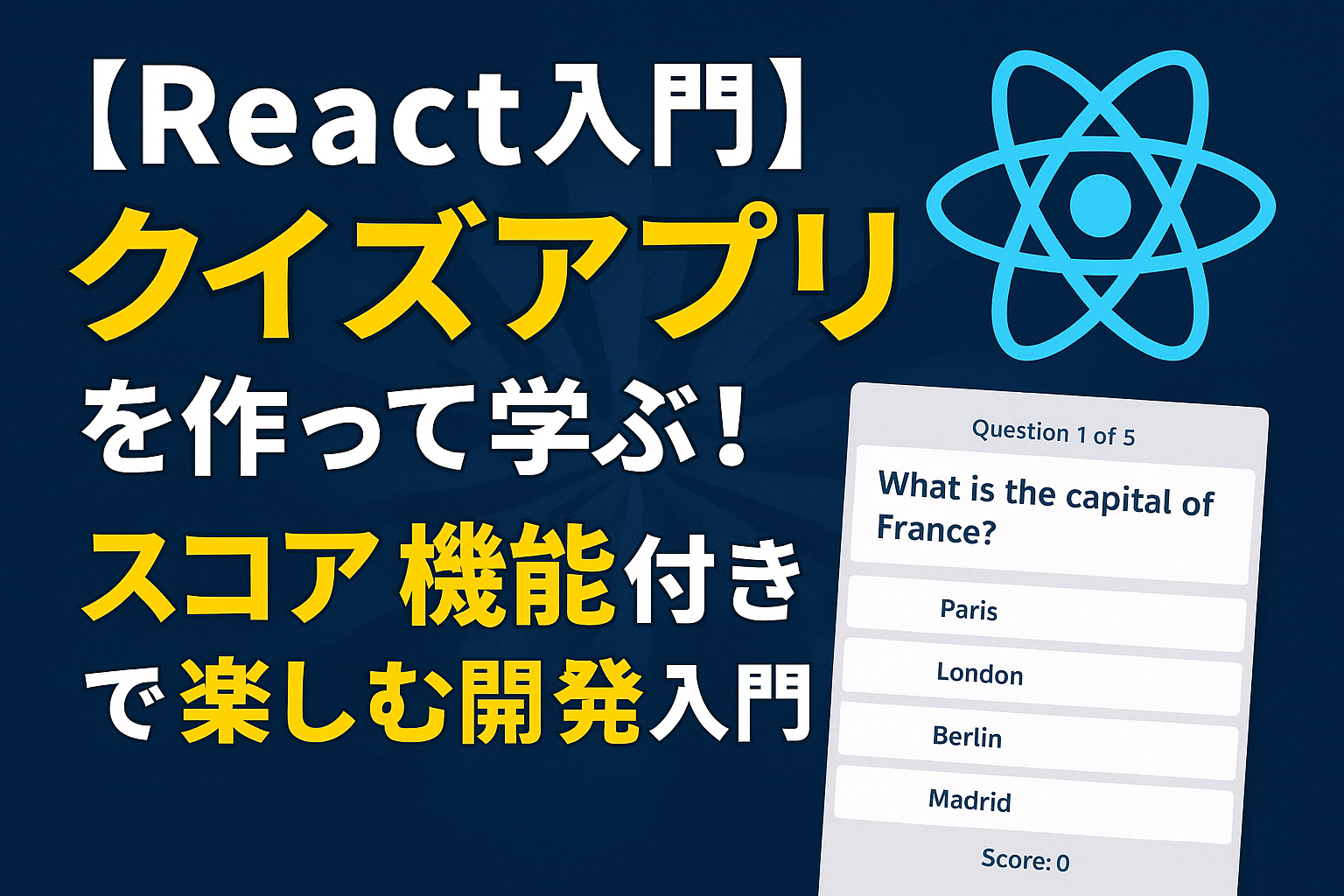I want to create a blog posting function using React, but I don't know how to handle form input or manage posts...
For those who have such concerns, this article will clearly explain "How to create a simple blog posting app with React."
Even for beginners,Form status management, post list display, and reset functionThis will allow you to implement it properly.
We will explain in detail using actual code, so please read to the end.
- Build a blog posting app with React
- What is React? Explained for beginners
- Configuring a simple blog posting app
- How to implement an input form
- How to display a list of posts
- Implementing post reset/deletion
- Design and Accessibility
- Common errors and solutions
- Practical code: The complete code
- Summary: Understanding React with Post Forms
Build a blog posting app with React
Conclusion: Form input is the basis of state management
With React,Manage input in real timecan.
It is also easy to implement operations such as listing and deleting posted content.
This is the perfect app for learning basic React functions such as "useState" and "map".
What is React? Explained for beginners
Features of React and reasons to choose it
React was developed by MetaJavaScript libraries for building UIis.
Because it is composed of reusable parts (components), it is highly maintainable and has strong characteristics for dynamic apps.
Why React is great for forms apps
- Form input and output are reflected immediately
・Changes in values can be managed by state
・Modification (componentization) makes management easier
Configuring a simple blog posting app
List of required screens and functions
This app uses the following screen layout:
- Posting form (title and text)
- Post list display area
- Delete/Reset button
State management and component decomposition
Give the "App" component a state,
Separate the form, post display, and delete button into separate components.
How to implement an input form
Manage form state with useState
1 | ); |
The state of the title and body text is managed by useState.
When typing, write it like this:
1 | |
Tips for handling input values together
1 | |
How to display a list of posts
How to manage posts with arrays
The posted content is saved as an array.
1 | |
Create a list display using the map function
1 2 3 4 5 6 | > ))} |
Implementing post reset/deletion
How to make a reset button
1 | |
To add the delete function
1 | |
Design and Accessibility
Minimal CSS styling and key points
- Maintain form margins
・The post list is easy to read with dividing lines
Buttons should be clearly labeled
Web accessibility as seen through official data
Reference: https://www.soumu.go.jp/menu_news/s-news/01ryutsu02_02000169.html
Common errors and solutions
How to fix the Uncontrolled input error
A warning will be issued if the value and onChange are not set, so always specify a value.
What to do when the status is not updated
Please note that the value after setState is reflected asynchronously, so it will not be reflected immediately.
Practical code: The complete code
1 2 3 4 5 6 7 8 9 10 11 12 13 14 15 16 17 18 19 20 21 22 23 24 25 26 27 28 29 30 31 32 33 34 35 36 37 38 39 40 41 42 43 44 45 46 47 48 49 50 51 52 53 54 55 56 57 58 59 60 | ; }); }; ; }); }; }; ( /> /> })}> ))} );} |
Summary: Understanding React with Post Forms
React BasicsState Management and Event HandlingPosting apps are very useful for learning.
By learning the entire process from form → posting → list display, you will be able to apply this knowledge to future developments.
As you gain some small successes, try your hand at things like "save functions" and "login functions" next!


